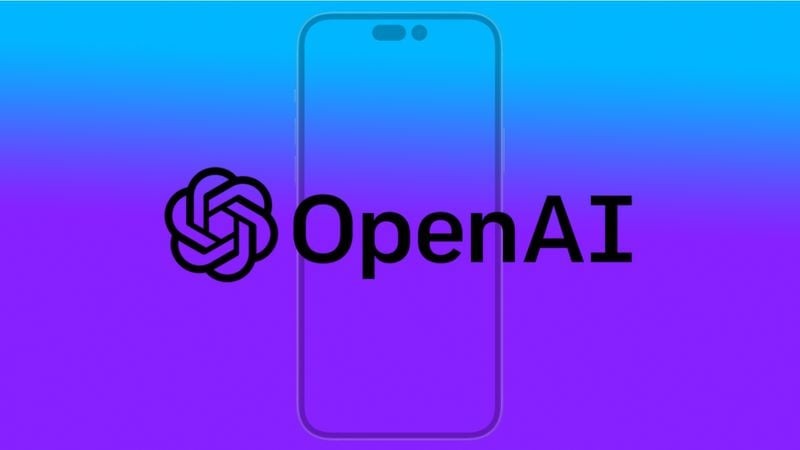In an era where artificial intelligence (AI) is rapidly transforming the tech landscape, Apple is reportedly engaging in strategic discussions with Google and OpenAI. The intent? To integrate advanced large language models into the AI functionalities of future iPhones. This collaborative effort underscores Apple’s commitment to enhancing its cloud-based services, potentially revolutionizing Siri and other AI-powered features on its devices.
Forging Ahead with Cloud-Based AI Innovations
A recent insight from MacRumors highlights Apple’s ambitions to tap into the expertise of Google and OpenAI. The objective is clear: harness the power of large language models, which have been trained on extensive datasets of text and code. Such models are adept at performing a variety of tasks, from generating creative content to providing informative responses to user queries.
The incorporation of these sophisticated AI models into Apple’s ecosystem could dramatically enhance Siri’s responsiveness and versatility. Imagine Siri not just executing commands but also generating creative content like poems, scripts, or even code, based on user requests. This marks a significant leap forward in making digital assistants more adaptive and insightful.

The Advantages of a Collaborative Approach
Apple’s potential partnerships with Google and OpenAI could yield numerous benefits, positioning the tech giant at the forefront of AI innovation:
- Access to State-of-the-Art AI Technologies: Collaborating with Google and OpenAI allows Apple to leverage their cutting-edge large language models, ensuring that Apple’s AI features remain competitive.
- Accelerated AI Development: By tapping into the pre-existing models and expertise of Google and OpenAI, Apple can expedite the development and refinement of its AI functionalities, saving valuable time and resources.
- Enhanced User Experience: The ultimate aim of integrating advanced AI into iPhones is to enrich the user experience. More intelligent AI features could provide users with comprehensive assistance, from nuanced conversational interactions to creative content generation, elevating the utility of iPhones in daily tasks.
Addressing Investor Concerns
While the report has stirred excitement, it also acknowledges investor apprehensions regarding Apple’s pace in rolling out these AI enhancements. In a rapidly evolving AI domain, the pressure is mounting on tech companies to innovate swiftly. However, Apple’s meticulous approach to technology development, emphasizing quality and user satisfaction, suggests a strategic patience that could differentiate its AI offerings in the long run.
Anticipating the Future of iPhone AI Features
While specifics remain speculative, the discussions with Google and OpenAI hint at a future where iPhones boast AI capabilities powered by some of the most advanced large language models available. Expected innovations could include:
- Enhanced Siri Intelligence: Siri could offer more accurate and comprehensive responses, understanding and executing complex user requests with greater efficiency.
- Creative Content Generation: Users might request Siri to generate creative texts, potentially transforming the way we think about content creation on mobile devices.
- Advanced Translation Services: Enhanced language models could improve translation accuracy, making global communication seamless.
- Personalized User Interactions: With improved AI, iPhones could offer more tailored recommendations and insights, adapting to individual user preferences and habits.
Conclusion: Navigating the AI Revolution
Apple’s exploration of collaborations with Google and OpenAI represents a strategic maneuver to position itself as a leader in the next wave of AI-driven innovations. By harnessing the capabilities of large language models, Apple aims to redefine the intelligence of digital assistants and the versatility of iPhone AI features. While investor concerns spotlight the competitive urgency in AI advancements, Apple’s commitment to quality and user-centric innovations may well chart the path to a new era of smartphone intelligence. As the tech world eagerly anticipates these developments, Apple’s collaborative efforts could usher in a transformative phase for AI capabilities on mobile devices, reshaping our interactions with technology in profound ways.










Add Comment